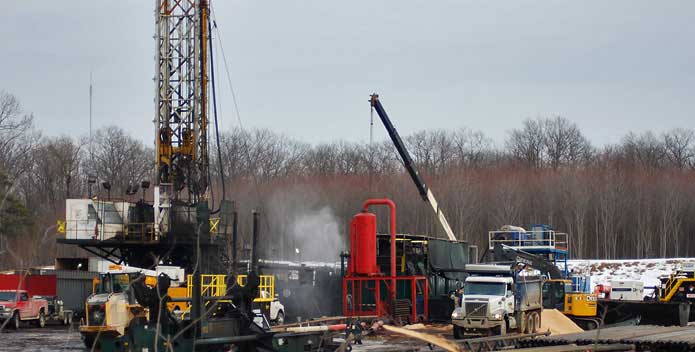CBF's Position
Because of the magnitude and intensification of natural gas drilling and the associated infrastructure it brings, unconventional and expanded natural gas development threaten to have a profound impact on the landscape of the Bay watershed for generations to come. The cumulative impacts from the construction and operations of well pads, access roads, pipelines, and compressor stations, as well as the water quality impacts and air pollution from trucks, well drilling, and ships may pose a risk to the Chesapeake Bay and the rivers and streams that feed into it.
CBF's concerns for the cumulative impacts of natural gas development call for a thorough and region-wide assessment of impacts from drilling and the subsequent natural gas distribution system.
CBF has not taken a position against natural gas development, nor have we called for a permanent ban on gas development in the region. Instead, we have embraced the precautionary principle. Our over-arching goal is to ensure that future energy development in the Chesapeake Bay region takes place in as safe and environmentally responsible a manner as possible. We have joined others in calling for a federal study of cumulative impacts of Marcellus shale development in the region and active participation in state policy initiatives (particularly in Pennsylvania).
What We've Done
Concerns throughout the watershed about the local and regional cumulative water quality impacts from the industry are growing. CBF is concerned and we're doing something meaningful about it.
Our first major efforts started in 2009 when CBF sued the Commonwealth of Pennsylvania for woefully inadequate water quality protection permit reviews for gas wells. A settlement in that case, while not perfect, vastly improved the permit review protocols undertaken by the Commonwealth.
CBF has undertaken a three-fold response plan to natural gas development and extraction, and has commented on individual natural gas pipeline projects.



